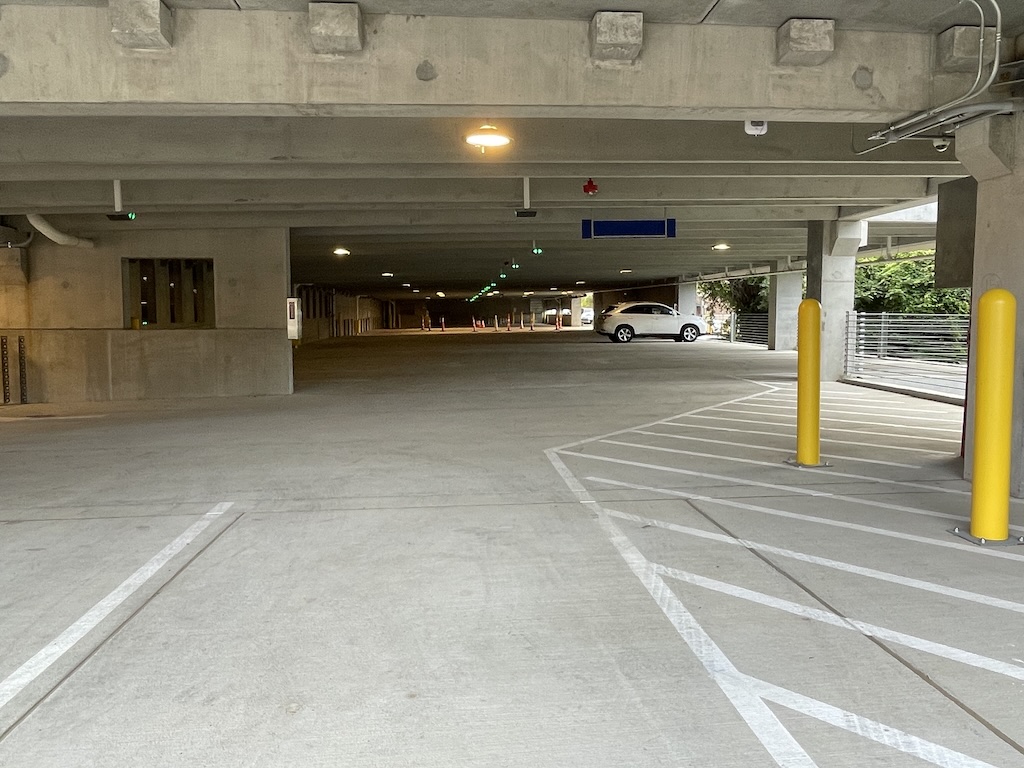In the United States, our cars have more housing than our people. How did we get here? A major culprit is outdated parking requirements that have quietly driven up housing costs, increased congestion, and made it harder to build walkable neighborhoods.
Chapel Hill faces a choice: maintain the status quo or follow the lead of Raleigh and Durham, who have taken bold action to reform their parking policies. If we choose action, the first step is clear: we must eliminate minimum parking requirements townwide.
Minimum parking requirements are local zoning rules that require developers to include a set number of off-street parking spaces for new buildings, usually determined by archaic formulas with variables like square footage and building use.
Minimum parking requirements, or parking minimums as they are often called, are a hidden force behind many of our biggest urban challenges. While debates about traffic, affordability, and emissions rage on, little attention is given to how much space is consumed by cars when they’re not in motion. Vehicles sit idle for 95% of their lives, and yet American cities are drowning in asphalt to accommodate them. Nationally, we’ve built more than eight parking spots for every car.
This practice is extremely costly. Blanket parking requirements make housing more expensive by forcing developers to build more parking than the market actually demands. Structured parking can cost up to $50,000 per space, and surface parking takes up valuable land that could otherwise support housing, green space, or local businesses. In Chapel Hill, the East Rosemary Street parking deck was recently completed with a price tag over $51 million.

Parking mandates also place an undue burden on those without vehicles. Do you pay for parking at your apartment building? How about the businesses you frequent? It is unlikely. This means the costs of that concrete parking deck or surface lot are passed on to you in the form of higher rent or higher prices, whether you drive or not.
Parking minimums are a relic of mid-20th century planning, rarely updated and absurdly specific. In Chapel Hill they are applied to everything from movie theatres (one space per five seats) to fraternity houses (one space per three residents), regardless of current context or need. While the town has meaningful steps by removing parking requirements in Town Center zoning districts, these requirements remain in effect for the rest of Chapel Hill.
Chapel Hill’s housing affordability crisis, combined with the growing urgency for climate action, make removing parking requirements townwide an obvious next step. Fortunately, we don’t have to guess what will happen if we act. Just look to our neighbors in Raleigh.
In 2022, Raleigh eliminated minimum parking requirements citywide. The city’s stated reasons mirrored what researchers have been saying for years: parking mandates raise housing costs, increase carbon emissions, and undermine walkability.
As a part of my master’s research project, Evaluating the Impact of Parking Reform in Raleigh, I reviewed and analyzed planning documents for all approved residential developments in Raleigh since it eliminated parking minimums. In more than half of the 52 residential projects, less parking was provided than the defunct parking minimums required. This is what flexibility looks like: allowing developers and businesses to respond to their clientele, market demand, and location.
Let’s be clear: removing parking minimums won’t ban parking. It won’t stop anyone from building parking or driving a car. What it will do is provide developers the flexibility to build more housing at lower cost. It will encourage denser, more walkable neighborhoods in areas where zoning allows. And it will reflect the fact that not everyone in Chapel Hill owns a car and no one should have to pay for someone else’s free parking.
The alternative is sprawl. When a formula in a statute requires parking everywhere regardless of circumstance, it pushes buildings farther apart, making it harder to walk, bike, or take transit. This results in a vicious cycle: more driving, more congestion, more emissions, and more demand for parking. Those who don’t drive are left behind, and those who do are stuck in traffic.
If Chapel Hill is serious about climate goals, housing affordability, and transportation equity, parking reform is not optional. It’s foundational.
Removing parking minimums won’t solve every problem. But it’s a high-impact, market-driven solution that signals a shift toward a more walkable, equitable, and affordable Chapel Hill.
And the time to act is now. Chapel Hill is in the midst of approving a wave of new development. These decisions will shape the form and function of our city for generations. Every unnecessary parking space we mandate today is a long-term investment in the status quo.

